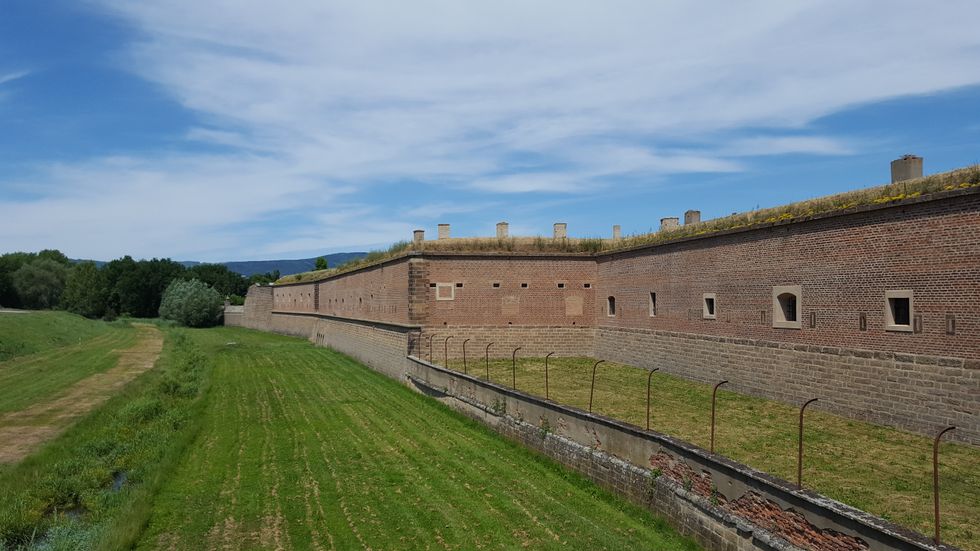After staying in Prague for two weeks, my study abroad class went on a trip to a former concentration camp, Terezin, in the northwestern part of the Czech Republic. I had no idea what to expect. When I hear about a concentration camp, I think of executions among other crimes against humanity being committed. The worst stories I've heard were about Auschwitz and Treblinka. It was hard for me to picture the camp at first because along with being a former Austrian fortress, it's also a town. It essentially served as a ghetto, but it was just as much of a concentration camp in terms of the conditions, from which most of the 33,000 Jews who died met their demise from. I was surprised to hear that not only were Jews forced to live here, but also Catholics, queer folk, Russians, and political dissidents.
15,000 of the Jews who lived here were children, and only 150 survived. Many of them attended school illegally, and they were offered an art class by their teacher, Friedl Dicker-Brandeis. What I've noticed in the children's art is that much of it depicts the life that they remembered before they were forced to live under such terrible conditions. There are thousands of paintings of nature and animals, trains, skies, volleyball nets, family farms, et cetera. Many of the poems described Terezin as hell, and each of them harbored the downtrodden emotions of the children. This painting above is called "It's Not in the Ghetto," by Dority Weiser.
I found it incredibly difficult to put myself in the shoes of those who were imprisoned here. I'm not Jewish, but I certainly didn't walk into the camp with a lack of perspective. The Holocaust is a terrible scar in human history, and I didn't want to imagine what the people had to endure there in Terezin. It didn't seem fair that I was allowed to walk through the streets and cells. I felt nothing but empty air as I walked through through the cramped washrooms, the bland streets with identical buildings, and the tiny cells with and without windows. What I could gather was that this was once an awful place where people treated other people worse than animals, and that the only future that most saw was even worse than the conditions that they had to bear.
Ivan Klima, a Jewish survivor of Terezin, lived in the ghetto and concentration camp during his childhood. Looking back on living in Terezin, he described that "the events of childhood no doubt influence a person for the rest of his life," and he followed this by saying that he's known people who are permanently possessed by a feeling of paranoia and the expectation that what happened to them then can happen again at any time. Klima also said that living in Terezin has had an opposite effect on him, and it's made him feel that what he's gone through can never be repeated, and the fact that he survived filled him with the expectation that he would happily survive everything he would ever encounter in life again. Visiting a concentration camp gave me a whole new perspective on what I do have in life. Most importantly, I have a family, friends, and a future that I have the opportunity to make for myself, and even today in some parts of the world, that's still being suppressed for many.





















